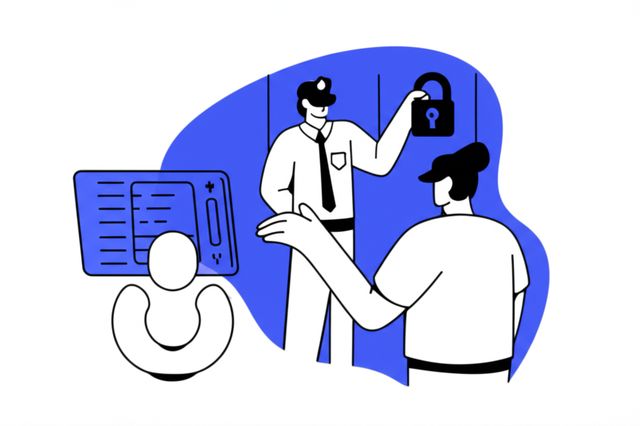Physical Security Specialist
Physical Security Specialists are responsible for the protection of people, property, and information through a variety of measures, including access control, surveillance, and security planning. As technology continues to advance, Physical Security Specialists are increasingly integrating technology into their work. This career is ideal for those who are detail-oriented, have strong analytical skills, and are passionate about keeping people and property safe.
Job Duties
The day-to-day responsibilities of a Physical Security Specialist can vary depending on the size and type of organization they work for. However, some common duties include:
- Developing and implementing security plans and procedures
- Conducting security assessments and risk analyses
- Installing and maintaining security systems
- Monitoring security cameras and other surveillance equipment
- Responding to security incidents
- Training employees on security procedures
Education and Training
Physical Security Specialists typically need a bachelor's degree in criminal justice, security management, or a related field. Many employers also require Physical Security Specialists to have experience in law enforcement or the military. Additionally, several certifications are available for Physical Security Specialists, such as the Certified Protection Professional (CPP) certification offered by the American Society for Industrial Security (ASIS).
Career Growth
Physical Security Specialists can advance their careers by taking on more responsibility and management roles. Some Physical Security Specialists may also choose to specialize in a particular area of security, such as cybersecurity or emergency management.
Skills and Knowledge
Physical Security Specialists should have a strong understanding of security principles and practices. They should also be proficient in using a variety of security equipment and systems. In addition, Physical Security Specialists should have excellent communication and interpersonal skills.
Challenges
One of the biggest challenges Physical Security Specialists face is the constantly evolving threat landscape. As technology advances, so too do the methods that criminals use to attack organizations. Physical Security Specialists must constantly update their knowledge and skills to stay ahead of the curve.
Projects
Physical Security Specialists may be involved in a variety of projects, such as:
- Developing and implementing a security plan for a new building
- Conducting a security risk assessment for an organization
- Installing and maintaining a security camera system
- Responding to a security incident
- Training employees on security procedures
Personal Growth
Physical Security Specialists can experience a great deal of personal growth through their work. They can learn about new technologies and security practices, and they can develop their leadership and management skills. Additionally, Physical Security Specialists can make a real difference in the world by helping to keep people and property safe.
Personality Traits
Successful Physical Security Specialists typically have the following personality traits:
- Detail-oriented
- Analytical
- Problem-solver
- Communicator
- Team player
Self-Guided Projects
Students who are interested in a career as a Physical Security Specialist can get a head start by completing some self-guided projects. These projects can help students learn about security principles and practices, and they can also develop their skills in using security equipment and systems.
Some examples of self-guided projects that students can complete include:
- Conducting a security assessment of their home or school
- Developing a security plan for a small business
- Installing and maintaining a security camera system
- Responding to a simulated security incident
- Training others on security procedures
Online Courses
Online courses can be a great way to learn about the principles and practices of Physical Security. These courses can help students develop the skills and knowledge they need to enter the field. Many online courses also offer hands-on experience through simulations and interactive labs.
Conclusion
Physical Security Specialists play a vital role in protecting people and property. This career is ideal for those who are detail-oriented, have strong analytical skills, and are passionate about keeping people and property safe. With the right education and training, Physical Security Specialists can have a long and successful career.


